Chalk Farm Coving Installation (NW1): The traditional way to soften the sharp lines between ceiling and wall surfaces is by the installation of coving and decorative mouldings. Trends change through the years and the use of coving in interior design is a prime example, one year it is in, the next it is out, yet homes in Chalk Farm continue to be adorned with this useful addition. However it is down to personal preference as to whether you have coving put up in your property or not. You have a simple choice to make, should you opt for sharp, contemporary lines or rounded, classic transitions?
What is Coving? - Coving is an architectural term, meaning a curved, concave material which is used to cover and soften the angles where walls meet ceilings within a building. You might be surprised to learn that coving can be made from several materials, the most common being PVC, plastic, timber, duropolymer, paper covered plaster, hardened polyurethane, high-density polystyrene, MDF and gyproc.
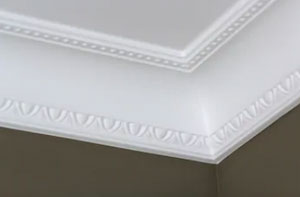
There are also a multitude of shapes and designs to choose from including dentil, ovolo, art deco, step, cyma reversa (or ogee), cavetto, Victorian, cyma recta, egg and dart and Edwardian.
The addition of coving to any room can subtly yet noticeably enhance the overall look and feel of the space. The shape of coving can help to create a seamless transition between ceilings and walls, giving your home a more refined appearance. But, with so many patterns and materials to choose from, selecting the right coving for your property can be overwhelming. When selecting coving, it's crucial to take into account your individual taste and the decor of your property. Achieving the best results with coving installation requires ensuring that the process is completed to the highest possible standard.
Having loads of choices can be both a good and bad thing, making it difficult to come to a final decision. It will be most helpful to get some advice and guidance from an experienced Chalk Farm coving fitter, which should put everything in perspective. In any case, we can provide you with the finest tips and tricks right here, so that your home in Chalk Farm can get an impressive coved finish.
Any dependable Chalk Farm coving installation specialist will be just as happy doing coving repair and refurbishment work as they will be creating completely new interiors. Your mouldings and coving may need a bit of TLC from time to time, as they can get rather shabby. Repairs could be necessary on cornices, fire surrounds, dado rails, dado corners, wall plaques, coving, picture rails, ceiling roses, corbels or panel mouldings.
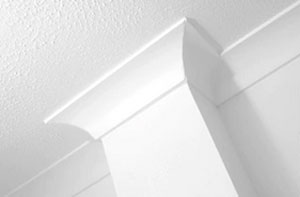
Your perfect choice of tradesman for this type of project is a specialist coving fitter in Chalk Farm, although you could possibly use a joiner (for wooden mouldings), a painter and decorator, or a plasterer. Whichever it is that you choose to employ, it is always sensible to check that they are experienced in work like this and that they're confident in what they're doing. To achieve the quality of finish that you should be after, you need someone who'll apply a painstaking level of care and diligence.
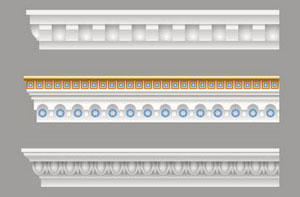
When the quotes come in, it would be an error in judgment to automatically go for the cheapest coving installer, without considering all the available alternatives. Having to bring in somebody else, because your first (cheap) choice resulted in shoddy workmanship is something that you should avoid. You need to pick the best person for the job if you want the final effect of your coving to be outstanding.
There are various methods that you can use when you're on the lookout for plasterers or coving fitters in Chalk Farm, you could use a trade portal like Rated People or Trustatrader, you can look on Instagram or Facebook, you could have a look at local newspapers or directories or you can head off to the FMB website and use their search facility for certified local plasterers and coving installers. You're able to search for coving related products such as ceiling roses, coving corners, coving cutting tools, coving adhesive and coving packs by going to Wickes, Jewson, Coving Direct or B&Q, and you can buy equipment and tools for plastering and coving (if you fancy doing it on your own) by browsing the websites of Screwfix, Artex or Tool Station.
The Advantages of Professional Installation
Whether to go for a professional or DIY approach for installing coving is primarily dictated by the complexity involved in the project, budgetary considerations and the person's skills.
- Expertise and Precision: With a rich background of skill and experience, professional installers are proficient in dealing with diverse types of coving materials, including the more challenging plaster. Their precision in measurement and cutting is key, especially for installations in irregular spaces or complex designs.
- Quality Assurance: Professional installation usually comes with a guarantee of quality. Experts are likely to produce a seamless finish, with secure and perfectly aligned coving. This is crucial in achieving a polished look and ensuring the long-lasting capabilities of the coving.
- Safety: Installing coving often involves working at heights and handling heavy materials. Professionals are trained to work safely in these conditions, reducing the risk of accidents.
- Time Efficiency: Hiring a professional can significantly reduce the time taken to complete the project. They are equipped with the right techniques and tools to expedite the process, which is particularly beneficial for large or complicated installations.
- Cost Implications: The principal disadvantage of opting for a professional installation is the associated cost. It's often much more expensive than a do-it-yourself approach, especially when the coving material, like plaster, is inherently costly.
Coving installation can be carried out in Chalk Farm and also nearby in: Clerkenwell, Falconer Walk, Hilldrop Estate, Barnsbury Estate, Highbury, Archway, Camden Town, Primrose Hill, Bloomsbury, Kentish Town, Marylebone, St John's Wood, Market Estate, Belsize Park, Kilburn, and in these postcodes NW1 8DR, NW3 2DB, NW1 8DB, NW1 8DN, NW3 2BQ, NW1 8AZ, NW1 8BR, NW3 2DS, NW1 8BA, and NW1 8DQ. Locally based Chalk Farm coving specialists will likely have the telephone code 020 and the postcode NW1. Checking this will confirm you access local coving fitters. Chalk Farm householders are able to utilise these and lots of other coving related services. If you wish to get an estimate for cornice or coving installation, this can easily be accomplished by clicking on the "Quote" banner.
Polyurethane Coving
Tougher than the cheaper polystyrene substitute, polyurethane coving is both light and painless to put up, giving a very professional finish. Normally pre-primed when purchased, polyurethane coving is already prepared for its final splash of paint once installed. Readily available in a range of shapes and sizes including step, plain, ogee step, rope, astragal and bead step, polyurethane coving is durable, easy to paint, versatile, recyclable and water resistant. (Tags: Duropolymer Coving Chalk Farm, Polyurethane Coving Chalk Farm, Cheap Coving Chalk Farm).
Maintenance and Repair of Coving and Cornices
Maintaining and repairing cornices and coving is an essential aspect of keeping a property in good condition. Over time, the beauty of cornices and coving, which can add a touch of style to a room, can diminish due to cracks, damage or discolouration.
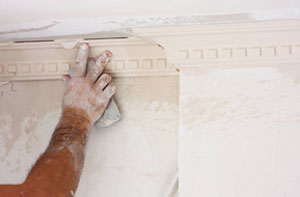
Frequent inspections and timely repair work can prevent additional damage by identifying and addressing problems early on. The repair process for cornices and coving can vary depending on the degree of damage, and can range from basic filling of cracks and smoothing rough spots to intricate replacement of sections. To ensure a flawless finish that matches the original design, it is important to repair coving and cornices using the correct materials and techniques.
Coving and cornices left unmaintained can lead to structural damage that jeopardises the building's integrity. Complex repairs or the restoration of historical cornices and coving may necessitate specialist services to complete. To prevent the buildup of grime and muck and preserve their original beauty, coving and cornices require not only repairs but also regular cleaning and dusting. Coving and cornices can enhance the beauty and worth of a property for a long time if they are repaired and well-maintained.
Plaster Coving Chalk Farm
Plaster coving is a traditional method of decorative moulding. It requires two people with experience and a high level of skill to install properly. Plaster coving is one of the oldest ways to decorate walls in Chalk Farm. It is made from lime and gypsum that are consolidated with hessian fibre. Once dried, this material hardens into a smooth, solid stone. This material is often used to install ceiling roses and coving.
Before installing plaster coving, plan and mark its layout. The length of each piece should match the length of the adjacent wall or ceiling. The length of the coving should be as precise as possible, and each piece should be level. You can then trim the pieces to eliminate gaps. Then, apply a thin layer of adhesive to the join where one piece of coving meets the next. This will ensure a strong bond and prevent cracks from appearing in the future. However, the installation of plaster coving is best left to the professionals, and local coving fitters will be able to provide quotes for its installation.
Plaster coving is a decorative plasterwork element that ties the walls and ceiling together. It is typically fixed in the wall-to-ceiling joint and can be used in lighting troughs, recessed ceilings and coiffured ceilings. It is available in a variety of sizes and period designs and is highly fire-resistant.
DIY Coving

It is naturally quite possible for you to have a bash at the coving by yourself. Coving is readily available to purchase from a number of outlets, so you can ask local Chalk Farm home improvement stores or purchase online. Generally coving can be purchased in 2 or 3 metre lengths, and sometimes you can also get the corners ready cut. You will need a good coving adhesive and some appropriate gap filler (unless you are really accurate). Coving adhesive is offered in tubes to apply by sealant gun, in ready mixed tubs or in powder form to be mixed as required.
There is of course a great deal of information online offering tips on how to put up coving, as well as descriptive videos and tutorials to help you as you go. We recently uncovered this interesting article which might be useful.
Plaster Cornice Repair Chalk Farm
Plaster cornice restoration is an important aspect of maintaining the aesthetic appearance of a building's interior. Cornices, the ornamental molding found at the joint between walls and ceilings, are vulnerable to damage caused by wear and tear, moisture or accidental impact.
Repairing a plaster cornice requires the expertise of a skilled tradesperson who can carefully assess the extent of the damage and devise a suitable restoration plan. Cleaning the area, removing any loosened or damaged plaster, and filling in the gaps with new plaster is the usual repair process for a plaster cornice. Matching the original design of a cornice during repair requires the skill of tradespeople who can replicate intricate designs or patterns.
The safety and structural integrity of a property can be compromised if a damaged cornice is neglected and left unrepaired. Therefore, it's crucial to seek professional help for any plaster cornice repair work. Preservation of the historical integrity of a property, especially in heritage buildings where original features are crucial, is aided by a well-maintained cornice that enhances the building's visual appeal.
Is Coving a Messy Job?
Coving installation can be quite messy. It involves applying plaster or adhesive to the ceilings and walls, then fixing decorative moulding in place. This process generates debris, dust, and the potential for spills. Cutting and fitting the coving can also result in the production of waste materials. While professionals utilise dust sheets and protective measures to minimise mess, some level of cleanup is typically required afterward. DIYers in Chalk Farm may find it messier due to inexperience. Overall, while coving can provide an eye-catching finishing touch to a room, it does entail a degree of messiness that requires management.
What Tradesman Puts up Coving?
Craftspeople who specialise in installing coving typically fall into three categories: painters and decorators, plasterers and carpenters. Plasterers, with their expertise in decorative moldings, often take on coving installation, which involves shaping and attaching plaster or gypsum-based strips to the intersection of walls and ceilings, resulting in smooth, seamless finishes. Carpenters also handle coving installation, particularly when it's made of wood or MDF (medium-density fiberboard). They meticulously measure, cut, and fit wooden coving pieces to create elegant and intricate designs. Both carpenters and plasterers make sure that coving not only enhances the room's aesthetic appeal but also conceals imperfections in wall-ceiling junctions, lending a polished and cohesive look to interior spaces. Painters and decorators may also handle coving installation, especially when it's made from polyurethane, duropolymer or polystyrene.
Bespoke Archways and Alcoves Chalk Farm
Timeless elements that can transform a space from ordinary to extraordinary, bespoke archways and alcoves, have been celebrated for a long time in the world of interior design and architecture. Architectural features such as these, can be both visually appealing and serve functional purposes. For example, they can define areas within a room, provide storage solutions, or simply add a little charm and elegance. Discover why bespoke archways and alcoves continue to be valued elements in interior design, let's look into their world.
Bespoke Archways: Archways are architectural wonders that have graced buildings and structures for many centuries, from ancient civilisations such as the Romans. Today, bespoke archways are making a major comeback in modern interior design. Tailor-made arches come in a range of styles, including the classic Roman arch and the more modern, minimalist designs.
One of the most striking features of custom archways is their ability to create a sense of transition and flow between spaces. While maintaining a sense of separation, they connect different rooms, creating an open and inviting atmosphere. Furthermore, archways can draw attention to specific areas or architectural elements within a room, serving as focal points. Adding a touch of character and sophistication to any space, custom archways can be tailored to match the overall aesthetic, whether built out of wood, stone or plaster.
Alcoves: Alcoves, on the other hand, are recessed spaces within a wall that can serve a number of purposes. For centuries, these charming niches have served as artwork displays, bookcases, and cosy reading corners. Bespoke alcoves allow Chalk Farm homeowners to personalise these spaces according to their unique needs and preferences, surpassing traditional alcoves in versatility.
The Perfect Marriage: Harmonious and aesthetically pleasing interiors are often the result of a creative combination of custom alcoves and archways. Crafting a sense of drama and anticipation can be achieved by a bespoke archway that ushers into a room with a well-designed alcove. The alcove is framed by the archway, which serves to emphasise its contents and increase the depth of the design as a whole. (49330 - Archways and Alcoves Chalk Farm)
Coving Related Tasks

Chalk Farm coving specialists will likely help with cornice mouldings, duropolymer coving in Chalk Farm, cornicing, kitchen coving, decorative plasterwork, Victorian cornices, cornice installation, coving restoration, lightweight coving Chalk Farm, plaster cornice repairs, character coving Chalk Farm, kitchen cornices, wooden cornice in Chalk Farm, coving for lights, bathroom coving installation, ceiling restoration, polystyrene coving Chalk Farm, cheap coving installation in Chalk Farm, coving replacement in Chalk Farm, repairs to coving, bedroom coving installation, Regency coving Chalk Farm, plaster coving installation, ornamental arches, ornate mouldings in Chalk Farm, cutting coving, polyurethane coving in Chalk Farm and other coving related work in Chalk Farm, Greater London. Listed are just a small portion of the activities that are performed by local coving fitters. Chalk Farm contractors will keep you informed about their entire range of services.
Browsing the Internet

There is no doubt that your initial instinct when you are trying to find a service or tradesman in Chalk Farm is to head online and "Google it". With widely used search engines like Ask, Bing, Yahoo or Google, you'll be able to get lots of instant results. It is not necessarily true that the results which are shown on the first page of the search engines are helpful to you.
Most householders, when looking to find coving fitters in Chalk Farm will enter "coving fitters near me", "coving fitters in Chalk Farm", "coving fitters Chalk Farm" or "Chalk Farm coving fitters" into the search box and go through the resulting listings. If you examine the resulting page 1 listings, you will notice that the first and last 4 results will be some sort of paid advertisements, whilst many of the rest are often from corporate lead generation websites such as Rated People, TrustaTrader, Quotatis, Bidvine, My Hammer or Checkatrade or internet directories like Thomson Local, Yell, Yelp or Three Best Rated. If you take a look at page two or three of the listings you will perhaps stand a better chance of finding the websites of actual coving specialists nearby. Therefore you'll have to dig deeper to find those. When looking to find the absolute best individual to complete your project, it is advisable to explore every avenue open to you, so everything provided by your online search needs to be considered so that you'll be able to find the right coving specialist in Chalk Farm.
Coving Installers Near Chalk Farm
Also find: Bloomsbury coving installers, Market Estate coving installers, Primrose Hill coving installers, Marylebone coving installers, Barnsbury Estate coving installers, Belsize Park coving installers, Kilburn coving installers, Kentish Town coving installers, St John's Wood coving installers, Archway coving installers, Clerkenwell coving installers, Highbury coving installers, Camden Town coving installers, Falconer Walk coving installers, Hilldrop Estate coving installers and more. Coving installation services are available in almost all of these localities. These versatile artisans ensure accurate and professional coving installation in your home, thanks to their expertise. Homeowners who select a qualified professional for coving installation can be certain of proper fitting, contributing significantly to their homes' overall beauty and character. To obtain coving installation price quotes, local householders can click here.
Chalk Farm Coving Services
- Duropolymer Coving
- Coving Designs
- Coving Services
- Coving Removal
- Wooden Coving
- Dado Rail Installation
- Coving Repairs
- Coving Supplies
- Coving Installation
- Egg and Dart Coving
- Plastic Covings
- Ceiling Rose Installation
- Cornice Installation
- Polyurethane Coving
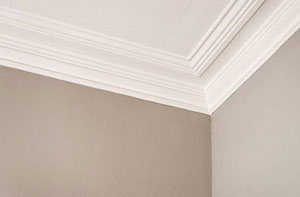 Coving Installation Chalk Farm
Coving Installation Chalk Farm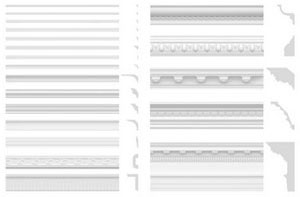 Coving Installers Near Chalk Farm
Coving Installers Near Chalk Farm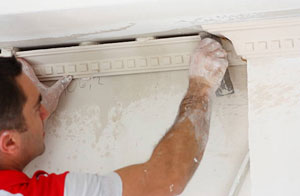 Coving Fitters Chalk Farm
Coving Fitters Chalk FarmTo get local information on Chalk Farm, Greater London look here
Coving fitters NW1 area, phone code 020.
TOP - Coving Installation Chalk Farm
Coving Installation Chalk Farm - Coving Fitters Chalk Farm - Ceiling Rose Installation Chalk Farm - Coving Fitters Near Me - Cornice Installation Chalk Farm - Cornices and Covings Chalk Farm - Coving Installers Chalk Farm - Dado Rails and Mouldings Chalk Farm - Coving Specialists Chalk Farm




